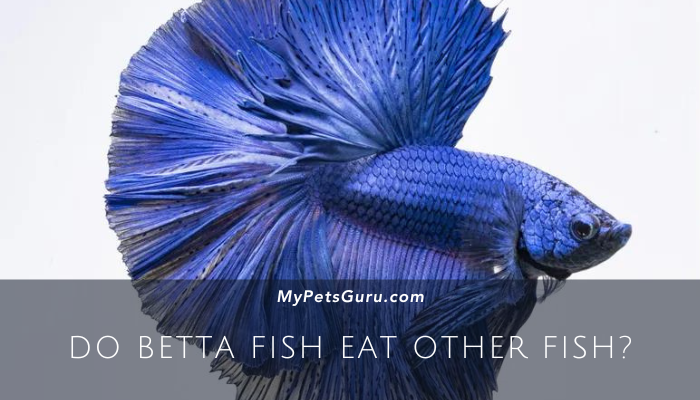Betta fish, also known as Siamese fighting fish, are beautiful and captivating creatures that have become increasingly popular as pets. With their vibrant colors and flowing fins, they make a stunning addition to any aquarium. However, one common question that arises when considering adding a Betta fish to a community tank is, “Do Betta fish eat other fish?” This article will explore this topic and provide you with all the information you need to know about Betta fish’s eating habits.
Here’s a quick recap of the key points:
| Key Takeaways |
|---|
| Betta fish can eat other fish, but it depends on various factors |
| Factors that influence their predatory behavior include tank size |
| Betta temperament, compatibility with tank mates, and food availability |
| Betta fish can peacefully coexist in a well-planned community tank |
| Compatible tank mates include Corydoras Catfish, Neon Tetras, and Ghost Shrimp |
The Predatory Nature of Betta Fish
In their natural habitat, Betta fish are solitary creatures known for their aggression. Male Betta fish, in particular, are territorial and will fiercely defend their space against intruders. They flare their fins and display their vibrant colors as a warning to any potential adversaries. It is this aggressive behavior that has given them the nickname “Siamese fighting fish.”
While Betta fish are not outright predator fish like some species, they do have carnivorous tendencies and will eat small aquatic organisms such as insects, larvae, and small crustaceans. In the wild, their diet consists mainly of insects and their larvae, including mosquito larvae. So, if you’re wondering if Betta fish eat other fish, the short answer is, yes, they can. However, there are several factors to consider before making any assumptions about their behavior in a community tank.
Factors Influencing Betta Fish’s Behavior
The likelihood of a Betta fish attacking and eating other fish depends on several factors, including tank size, the fish’s temperament, and the availability of food. Here are some key points to keep in mind:
- Tank Size: Providing a spacious tank with plenty of hiding spots and swimming areas can help reduce aggression between Betta fish and other tank mates. A tank that is too small can lead to overcrowding and territorial disputes.
- Betta’s Temperament: Each Betta fish has its own personality and temperament. Some may be more aggressive and prone to attacks, while others may be more peaceful and get along with other fish.
- Compatibility: Choosing tank mates that are compatible with Betta fish can minimize the chances of aggression and predation. Avoid pairing them with fish with long, flowing fins, as Betta fish may mistake them for rival males.
- Food Availability: A well-fed Betta fish is less likely to view other fish as potential meals. Providing a varied and balanced diet that meets their nutritional needs can reduce the chances of them resorting to cannibalism.
Betta Fish as Community Tank Residents
While Betta fish have a reputation for being fierce fighters, they can coexist peacefully with other fish in a well-planned community tank. The key is to carefully select tank mates that are compatible with Betta fish and provide a suitable environment that minimizes aggression.
Here are some suitable tank mates that can peacefully coexist with Betta fish:
| Species | Key Points |
|---|---|
| Corydoras Catfish | Bottom-dwelling fish that are peaceful and compatible with Bettas |
| Neon Tetras | Small, schooling fish that can add color to the tank |
| Ghost Shrimp | Invertebrates that help with cleaning and make interesting tank mates |
Remember to introduce new fish gradually and monitor their interactions closely. If any aggression is observed, immediate action should be taken to prevent injury or fatalities.
Conclusion
While it is possible for Betta fish to eat other fish, their predatory nature is influenced by factors such as tank size, temperament, and food availability. By providing a suitable tank environment and selecting compatible tank mates, Betta fish can peacefully coexist with other fish in a community tank. Remember to always observe their behavior closely and intervene if any aggression is detected. With proper care and attention, Betta fish can thrive and become a delightful addition to your aquarium.
Now that you know more about Betta fish’s eating habits and their interaction with other fish, you can make an informed decision when considering adding them to your aquarium. With the right setup and precautions, you can create a vibrant and harmonious underwater world for your Betta fish and their tank mates.
So, go ahead and create an inviting aquatic environment for your Betta fish, and enjoy the beauty and serenity they bring to your home!

Hi, I’m Lila Hart, and I’m just as fish-obsessed as they come! I’ve been enamored with aquatic life since I was a little kid. Now, I’m a marine biologist with over 3 years of hands-on experience in the world of pet fish.
I’ve learned the ropes of fishkeeping through trial and error, and I’m excited to share my knowledge with you. My mission is to help you create a thriving aquatic paradise for your finned companions. Together, we’ll explore the fascinating underwater world of pet fish!

